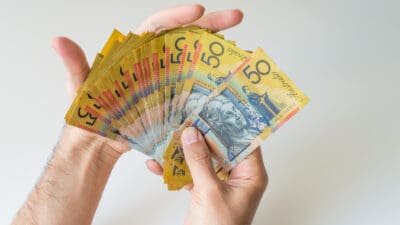Inflation has jumped in Australia. What does this mean for S&P/ASX 300 Index (ASX: XKO) shares and the Vanguard Australian Shares Index ETF (ASX: VAS)?
For readers unfamiliar with the VAS ETF, it's an exchange-traded fund (ETF) that tracks the ASX 300. It's an index fund.
The share price movements of names like BHP Group Ltd (ASX: BHP), Commonwealth Bank of Australia (ASX: CBA) and CSL Limited (ASX: CSL) affect the movement of the unit price of the Vanguard Australian Shares Index ETF.
What's happening with inflation?
The Australian Bureau of Statistics (ABS) just released the quarterly inflation numbers for the three months to June 2022. They showed CPI inflation of 1.8%. The 12 months to June 2022 showed annual inflation of 6.1%.
New dwelling costs rose 5.6% due to "high levels of building construction activity combined with ongoing shortages of materials and labour", vehicle fuel prices rose 4.2%, and furniture prices increased 7%.
Inflation can have wide-reaching effects. It can lead to rising costs for different businesses in mining, retail, construction and so on. Wages are also increasing.
But there's also the inflation impact on interest rates.
Central banks respond
Economists and central bankers believe it's important to get inflation under control. They hope that by reducing economic demand for goods and services, inflation will slow to a more normal level. The Reserve Bank of Australia has an ongoing target range of 2% to 3%.
The US Federal Reserve just increased its interest rate by another 75 basis points or 0.75%. That's the second increase of that size in a row.
Warren Buffett has previously explained why interest rates can be so influential for assets (such as the VAS ETF):
The value of every business, the value of a farm, the value of an apartment house, the value of any economic asset, is 100% sensitive to interest rates because all you are doing in investing is transferring some money to somebody now in exchange for what you expect the stream of money to be, to come in over a period of time, and the higher interest rates are the less that present value is going to be. So every business by its nature … its intrinsic valuation is 100% sensitive to interest rates.
How are things going for the VAS ETF?
Since the start of 2022, the Vanguard Australian Shares Index ETF has dropped by more than 10%. It hasn't fallen as much as other ETFs, such as the BetaShares Nasdaq 100 ETF (ASX: NDQ), which has dropped by 25%.
The big four ASX banks haven't fallen much in 2022. For example, the CBA share price is only down by 3.5%. Analysts think that bank lending profitability can increase with stronger net interest margins (NIMs) as banks pass on the interest rate hikes to borrowers. However, brokers such as Morgan Stanley warn that higher interest rates could lead to more bad debts.
While the share prices of some resource businesses like Rio Tinto Limited (ASX: RIO) have dropped in recent weeks on weaker commodity prices, they started the year at a lower level. At the time of writing, the Rio Tinto share price is only down 2.7% for the year.
Tech and retail have been two of the hardest-hit sectors in this year's sell-off. Tech is suffering from a hit to valuations, and investors are worried that retail could be affected by households having less money to spend.
As examples, the Wesfarmers Ltd (ASX: WES) share price is down 23% while the Xero Limited (ASX: XRO) share price is down 39%. But these aren't major positions in the ASX 300 compared to banks and miners.
There is uncertainty in the ASX share market today. Investors will just have to see how long it takes to get inflation under control, and by extension, how high interest rates will have to go.









